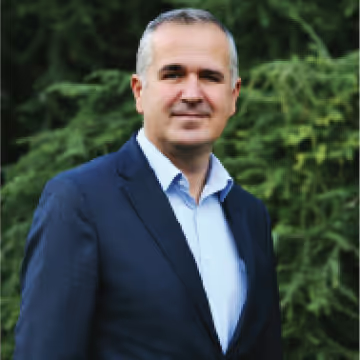Portugal's Golden Visa Following The 2025 Election
Portugal’s Golden Visa program has long stood as a cornerstone in the global investment migration market—offering not only residency rights but also a pathway to European Union citizenship.
However, the outcome of the country’s 2025 general election has introduced a new phase of uncertainty, leaving many current and prospective investors wondering what lies ahead.
With the Aliança Democrática (AD) coalition securing victory but falling short of a majority, Portugal is entering a delicate political balancing act. This moment presents both risks and opportunities for those seeking secondary citizenship through investment.
The Current Status of Portugal’s Golden Visa in 2025
Following substantial reforms in October 2023, the Golden Visa program has undergone a significant transformation. Real estate purchases and large passive capital transfers—once the most popular routes—were removed from the list of eligible investments.
The modern version of the program now focuses on contributions that align more closely with Portugal’s long-term economic and cultural goals.
These include investments in venture capital funds (unlinked to real estate), funding for scientific research, support for cultural heritage, commercial company formation with job creation, and other active forms of capital deployment.
While these changes narrowed the program’s scope, they also aligned it with EU policy trends that prioritize sustainable and socially responsible investment.
Existing Golden Visa holders remain protected under transitional rules, meaning they can renew their permits and reunite with family members as before—albeit with more in-person procedural requirements.
The Political Shift and What It Could Mean
The May 2025 general election followed a period of political upheaval. The AD coalition, led by Luís Montenegro, emerged victorious, forming a minority government. Their stance on immigration and investment programs is nuanced: while critical of the prior administration’s restrictions on real estate investments, they have also expressed concerns about the perceived abuse of Golden Visa routes for citizenship acquisition.
Specifically, the AD has proposed stricter physical presence requirements for those using the Golden Visa to obtain Portuguese citizenship.
Currently, applicants can become eligible with as little as 14 days of residency over five years—largely due to delays in application processing. AD wants to change that, advocating for policies that require applicants to “genuinely reside” in the country before becoming citizens. While this proposal has not yet been formalized in legislation, it marks a philosophical shift toward tying immigration benefits to deeper integration.
The minority status of AD’s government complicates the policy landscape.
While far-right party Chega has an anti-immigration stance, it is unlikely to become a formal coalition partner. Informal parliamentary support from Socialist Party members, however, could result in more measured, centrist policies—delaying or even diluting proposed changes to the Golden Visa.
What This Means for Investors
For investors eyeing Portugal as a gateway to EU citizenship, the current climate calls for strategic decision-making. While there is no immediate threat to the Golden Visa’s continuity, future reforms could make the path to citizenship more burdensome and time-consuming.
At present, the following remains true:
- The program is active, albeit with revised investment criteria.
- Transitional protections are in place for those who applied before the 2023 reforms.
- Physical presence requirements are still minimal but may become stricter pending future legislation.
- No major policy changes are expected before the end of Q3 2025 due to legislative scheduling.
These factors create a “now-or-never” window for those considering an application under the current, relatively lenient conditions.
Final Thoughts: Cautious Optimism with Timely Action
Despite political uncertainty, Portugal continues to offer one of Europe’s most attractive and accessible residency-by-investment routes. The country’s track record of honoring transitional rules and its reliance on foreign capital in key sectors like tourism and innovation suggest that the Golden Visa won’t disappear overnight. Investors, however, should not be complacent.
The new government’s direction, coalition dynamics, and legislative priorities could reshape the program’s contours over the coming year. If you’re considering securing EU residency with a view to future citizenship, acting now—while the rules remain favorable—may prove to be a smart, strategic move.
Portugal’s appeal as a lifestyle destination, a business hub, and a citizenship bridge remains undiminished. But as always with immigration pathways, timing is everything.























